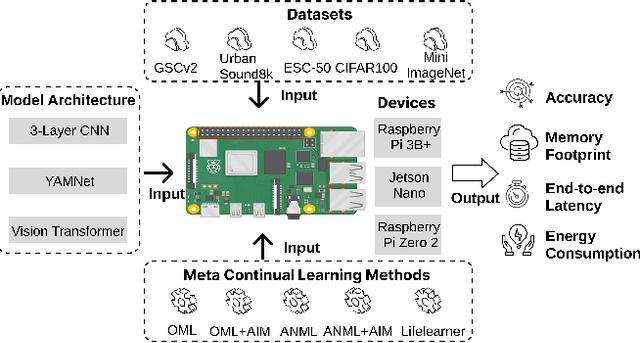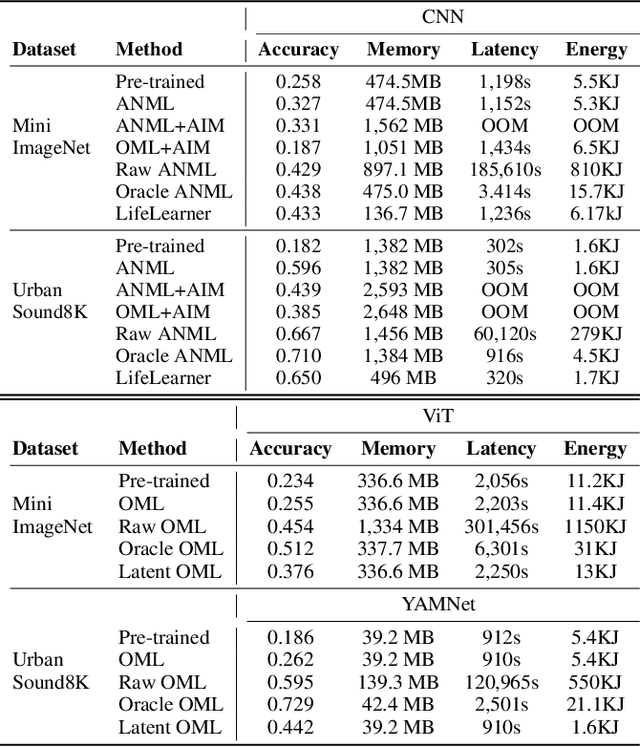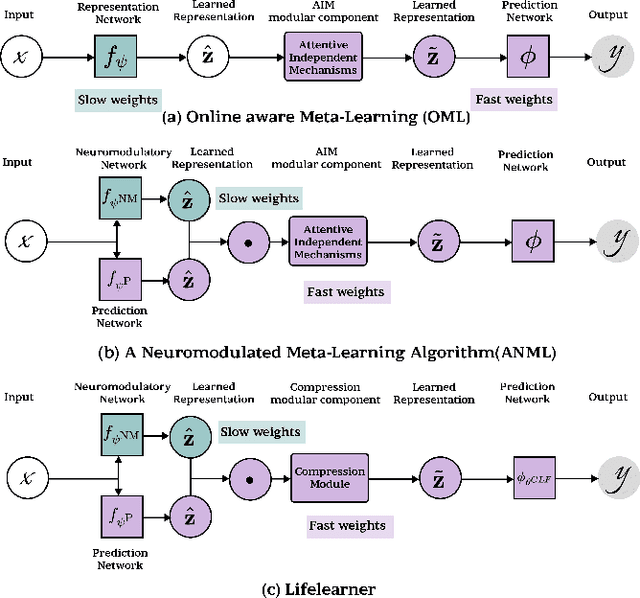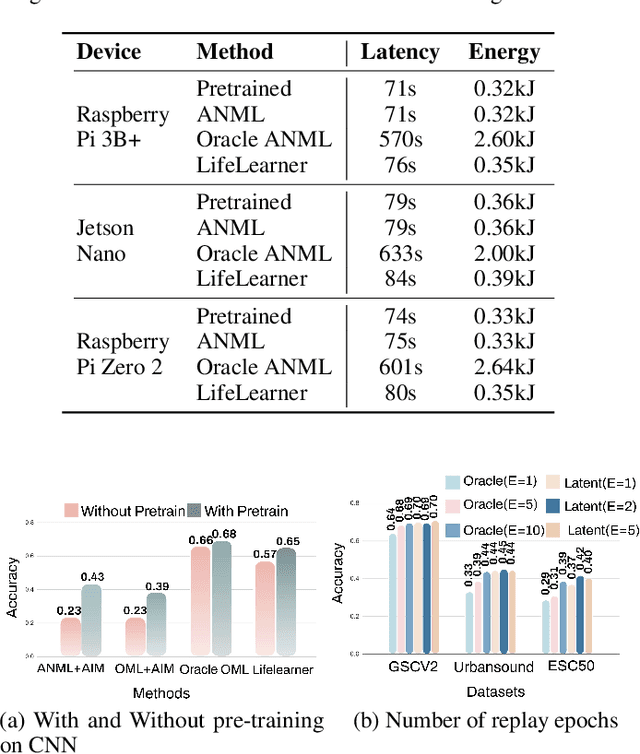MetaCLBench: Meta Continual Learning Benchmark on Resource-Constrained Edge Devices
Paper and Code
Mar 31, 2025



Meta-Continual Learning (Meta-CL) has emerged as a promising approach to minimize manual labeling efforts and system resource requirements by enabling Continual Learning (CL) with limited labeled samples. However, while existing methods have shown success in image-based tasks, their effectiveness remains unexplored for sequential time-series data from sensor systems, particularly audio inputs. To address this gap, we conduct a comprehensive benchmark study evaluating six representative Meta-CL approaches using three network architectures on five datasets from both image and audio modalities. We develop MetaCLBench, an end-to-end Meta-CL benchmark framework for edge devices to evaluate system overheads and investigate trade-offs among performance, computational costs, and memory requirements across various Meta-CL methods. Our results reveal that while many Meta-CL methods enable to learn new classes for both image and audio modalities, they impose significant computational and memory costs on edge devices. Also, we find that pre-training and meta-training procedures based on source data before deployment improve Meta-CL performance. Finally, to facilitate further research, we provide practical guidelines for researchers and machine learning practitioners implementing Meta-CL on resource-constrained environments and make our benchmark framework and tools publicly available, enabling fair evaluation across both accuracy and system-level metrics.
 Add to Chrome
Add to Chrome Add to Firefox
Add to Firefox Add to Edge
Add to Edge